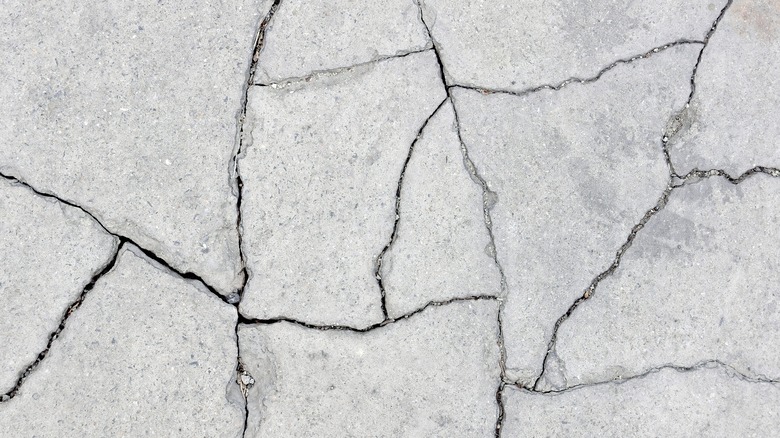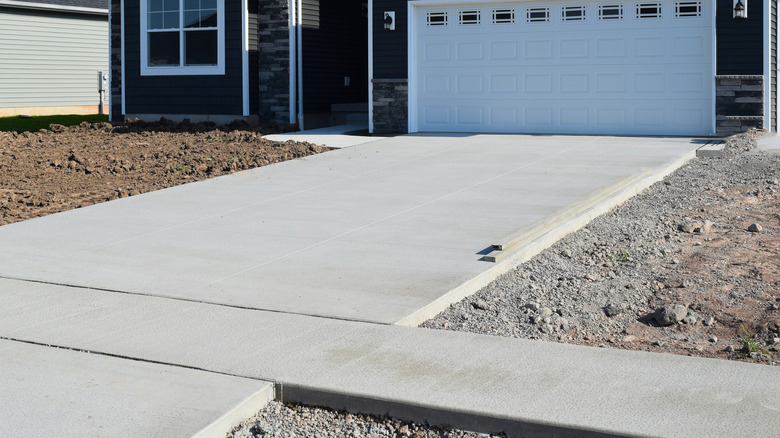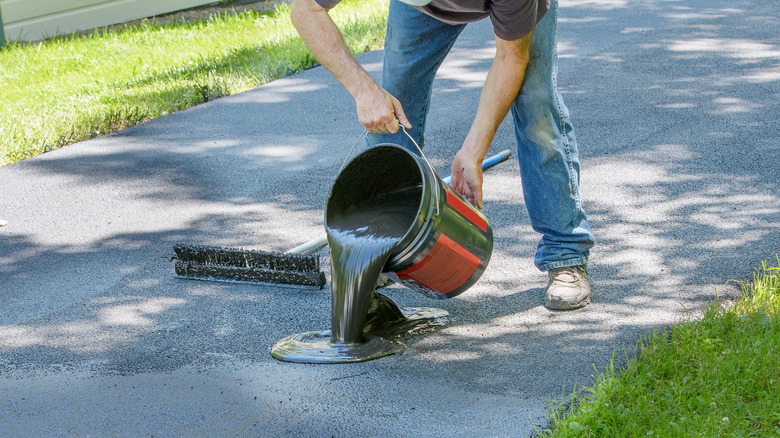Why Your Driveway May Be Sinking
The sound of the driveway under your car's tires is a sure sign that you're finally home. Coming home should feel safe and relaxing, whether you had a long day at work or a trip out of town. However, this moment could be ruined when your driveway begins to sink, causing bumps or dips along the way to your parking spot. According to Bankrate, it can be expensive to install or upgrade a driveway, with the average cost ranging between $4,500 to $5,100. This means a broken driveway might sound a lot like dollars being sucked out of your saving account.
Before you call someone to repair your driveway, it's helpful to understand what is causing it to sink, and that will depend on what type you have. Finding the cause is vital in preventing it from happening again, which would result in even more money spent on future repairs. It's possible that driveway issues will be covered under homeowners insurance depending on the cause of the damage. On the other hand, if you recently had a driveway installed, it could still be under warranty, provided one was offered.
Why concrete driveways sink
According to Forbes, concrete driveways are the most popular type because they are durable, aesthetically pleasing, and reasonably priced for shorter driveways. So what causes them to sink? Naybur Bros says concrete slabs often sink due to poorly constructed foundations and improperly prepared ground. Concrete needs a compacted and sturdy base before it's poured. If the installers rush this process or skip steps, you'll likely end up with a driveway that has sinking, buckling, or cracking slabs.
Another common issue with concrete driveways occurs when they are installed for new developments. When large new construction neighborhoods are built, they tend to be completed quickly; sometimes this doesn't give the soil enough time to properly settle. This then causes the ground to shift, which can move the concrete driveways that are often installed. Concrete Hero says water damage and erosion are also common elements that can ruin concrete driveways. If water is not directed away from the slab and, instead, regularly runs over or under it, the water can cause severe damage. Erosion of the soil under and around the concrete will further weaken it and cause it to shift.
Why asphalt driveways sink
Asphalt is widely considered a perfect material for driveways, but it can also suffer from sinking. As with concrete, Alpha Paving Industries notes that broken or leaking water lines can compromise the soil beneath or near the asphalt and cause it to move. Poor drainage around the driveway exacerbates this issue. If downspouts are not properly running water away from the house and, instead, pour water directly onto or near the asphalt, you'll likely have a problem eventually. Additionally, if the asphalt isn't installed correctly and with the proper support, it will weaken and sink over time. That's why it's so important to hire a professional asphalt contractor for this type of job, warns A-1 Asphalt.
Another common issue that causes asphalt to sink is the decomposition of materials under the driveway. For example, if there used to be a tree where the driveway is now, left behind roots of that tree will eventually rot and could cause the ground to sink. Furthermore, failing to routinely care for and maintain asphalt will likely result in it suffering from damage caused by normal exposure to the great outdoors.


